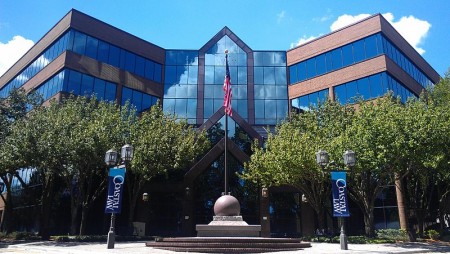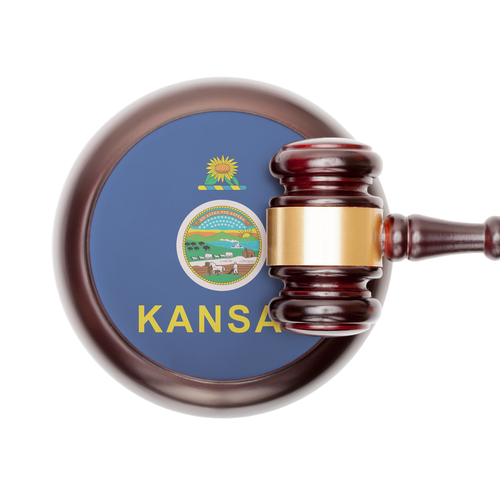For-profit Florida Coastal tightens admissions standards and reduces class offerings

Florida Coastal College of Law, part of the InfiLaw system. Photo by Waters2100, via Wikimedia Commons
The for-profit Florida Coastal School of Law is not on probation by the American Bar Association, like the other two law schools in the InfiLaw System, but the Jacksonville law school says it has introduced stricter admission requirements.
For admissions, the law school plans to raise its minimum LSAT score by almost 7 points, the Florida Times Union reports.
Florida Coastal’s 25th percentile LSAT score was 141, according to its 509 report (PDF) for 2016. That year, the school reported an enrollment of 655 students. According to the school’s 509 report (PDF) from 2011, its 25th percentile LSAT score was 145, and it had a total of 1,753 students.
Scott DeVito, the law school’s dean, told the newspaper that some elective classes have been cut to focus more on bar preparation and law practice schools.
“Our classes are shrinking based on that,” he said. “We want a core set of classes that are rigorous enough to really teach students how to be prepared to practice law.”
Florida Coastal reported a bar passage rate of 61.56 percent in its 509 report for 2016.
Also, the law school is not meeting the U.S. Department of Education’s gainful employment standard, which measures debt-to-earnings ratios, the agency reported in January. DeVito told the newspaper that the law school has appealed the finding.
InfiLaw is part of Sterling Partners, a private equity fund. Arizona Summit School of Law, another InfiLaw school, was placed on probation in March by the ABA Section of Legal Education and Admissions to the Bar. The law school was found to be out of compliance with various rules regarding program objectives, academic standards and admissions standards.
The other school, Charlotte School of Law, was placed on probation in 2016 for similar reasons. It lost federal student loan access after the ABA’s decision, and in June the University of North Carolina’s Board of Governors committee, which handles state authorization and licensure for nonpublic, post-secondary degree granting institutions, found that the law school was not in compliance with state standards regarding financial resources, planning or stability.
As a condition of its state license, Charlotte School of Law must submit an ABA-approved teach-out or remedial plan by Aug. 10. Also, the decision directs the law school not to admit new students, and it must obtain a tuition guaranty bond of at least the equal amount of the prepaid tuition from students who may participate in the proposed teach-out plan.
In a statement (PDF) the law school released after the Board of Governors committee’s decision, Charlotte School of Law described the state finding as positive and indicated that it plans to continue pursuing both ABA accreditation and participation in the federal loan program.



